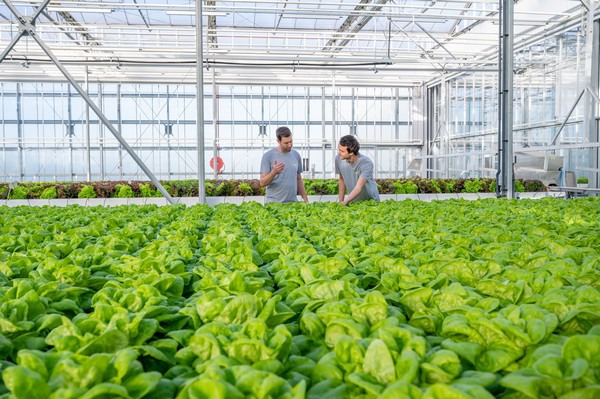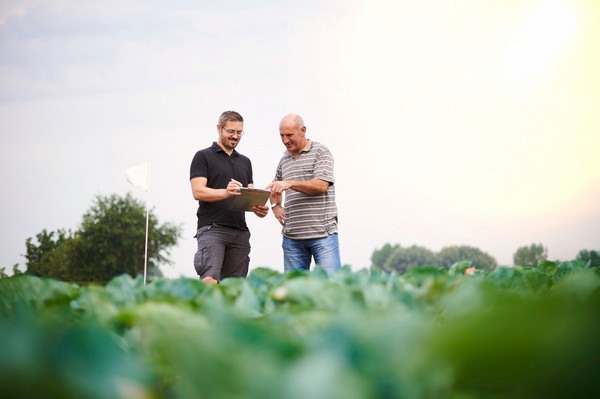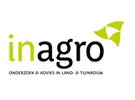At Inagro, the future of agriculture and horticulture is central. Their latest five-year market survey shows that Flemish farmers are aware of the need to adapt their business operations to changing conditions. Although a significant proportion of farmers are open to innovations such as precision agriculture and robotization, a significant group remains rather wait-and-see and reluctant.
Mixed reactions to innovation and diversification
Inagro's market research reveals both optimism and reluctance among farmers. A third of farmers surveyed are actively pursuing investment and development plans, while another third are preparing for retirement or an acquisition. "The results show that part of farmers see opportunities in technological advances, while others are still hesitant about these changes," says Mia Demeulemeester, deputy director of Inagro. "There is a need for continued support and guidance in implementing innovations at farm level."

In addition, the survey shows that cooperation with fellow farmers and diversification are important strategies for the future. Organic farmers in particular see great benefits in this. Almost half of the farmers surveyed are considering taking their operations in a new direction. For example, 30% are thinking of switching to a more agro-ecological approach or to organic farming, 20% are considering the possibilities of the short chain, and 35% see opportunities in agricultural broadening. The introduction of new crops was also polled, with a third of growers considering this, with fiber crops and pulses being favorites.
Need for economic support and policy involvement
While satisfaction with Inagro's services remains high, farmers indicate that more attention needs to be paid to the economic aspects of innovations. They want to be better informed about the financial impact of new techniques and methods so they can make informed decisions that strengthen their operations. "Farmers not only want to know how new techniques work, but also what the impact is on their profitability," argues Demeulemeester. "This is a clear signal that we need to further expand our services to offer economic insights as well."
In addition, farmers expect Inagro to play a stronger role in policymaking. "Inagro's insights are of great importance for policy," says Bart Naeyaert, West Flanders deputy for agriculture. "It is essential that farmers' practical experiences and needs are reflected in policy, including regulations. Inagro's findings in this regard can flow through even better to policymakers. In this way, we create a framework that reflects the reality on the ground and enables the sector to move towards an even more sustainable and profitable future."

Through the market survey, Inagro mapped farmers' priorities. Especially important to them were the themes of soil quality, growing within the MAP legislation, new crops, less chemical crop protection and automation.
On- and offline knowledge sharing
More than 70% of farmers and horticulturists say they actively seek knowledge and find it through various channels. Physical events such as study days and fairs remain favorites, but digital communication such as webinars and Inagro's weekly newsletter are also gaining popularity, especially among younger farmers. "Farmers are willing to invest in knowledge. It is our job to offer that knowledge tailored to their needs through various channels so that everyone in the sector can benefit from the latest insights," says Demeulemeester.
Working together for a strong agricultural sector
Overall satisfaction with Inagro remains high over the years. More than half of farmers indicate that Inagro's knowledge and advice have improved their own decisions and farm results. Moreover, 70% are convinced that Inagro contributes to making the sector more sustainable.
To perpetuate and strengthen this positive impact, Inagro uses the insights from the market research to further improve its services and tailor them to farmers' needs. In addition, the organization intends to share the knowledge and results gained with other stakeholders within the agribusiness complex to further jointly work on the transition within the agricultural sector. "Together with many partners, Inagro is tasked with making the agriculture sector future-proof and resilient. Farmers can rely on us to continue supporting them in the challenges ahead, with a strong focus on sustainability and economic resilience," concluded Mia Demeulemeester.
Photos: © Inagro
For more information:
Inagro
Tel: +32 51 27 32 00
info@inagro.be
www.inagro.be
